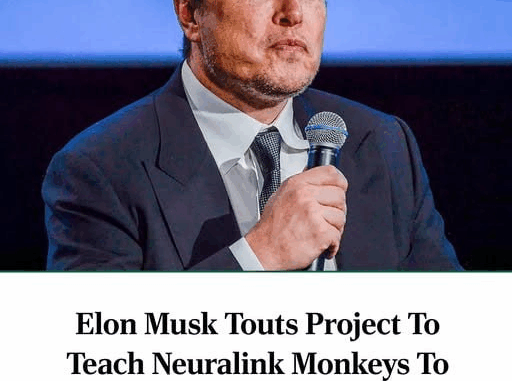
May 14, 2025 — Tech & Innovation Desk
In his latest public appearance, tech billionaire and Neuralink founder Elon Musk has once again stirred global curiosity by touting a new initiative aimed at “teaching” Neuralink, his brain-computer interface (BCI) technology, to process and learn from human cognitive patterns. The bold plan represents what Musk describes as the “next frontier in symbiotic AI.”

“We’re not just linking brains — we’re training minds and machines together”
Speaking at the Neuralink Research Conference in Austin, Texas, Musk outlined his vision for a future where Neuralink devices do more than read neural signals: they learn from the human brain in real time, adapting to individual users and enabling smarter, more intuitive integration.
“Imagine a world where your Neuralink knows what you need before you say it — where communication between mind and machine is seamless, personalized, and deeply intelligent,” Musk said. “That’s where we’re going.”
The project, internally dubbed “Project Synergy”, will reportedly focus on advanced neural learning algorithms. These models are designed to identify patterns in decision-making, memory retrieval, and even emotional response — all while evolving alongside the brain.

Beyond Restoration: Augmentation as the Next Step
Neuralink has so far emphasized medical applications: restoring movement in paralyzed patients, treating neurological disorders, and enabling communication for those with severe disabilities. But Project Synergy marks a shift toward human augmentation, a concept that has fascinated Musk for years.
“Restoration is only the beginning,” said Dr. Mary Chen, lead researcher at Neuralink. “We believe the same interface that helps a patient walk again could also help a healthy brain become more focused, more creative, or even learn languages at accelerated rates.”
Ethical Debate Rekindled
As with most Neuralink announcements, Musk’s comments have reignited ethical and regulatory debates. Critics warn that adaptive neuro-AI could lead to privacy concerns, cognitive manipulation, or deepening class divides between those who can afford neural upgrades and those who cannot.
Dr. Susan Meyer, a neuroethics scholar at Stanford, commented:
“Teaching AI through the human brain blurs the lines between tool and identity. We must tread carefully — not every innovation should become an implant.”

Để lại một phản hồi